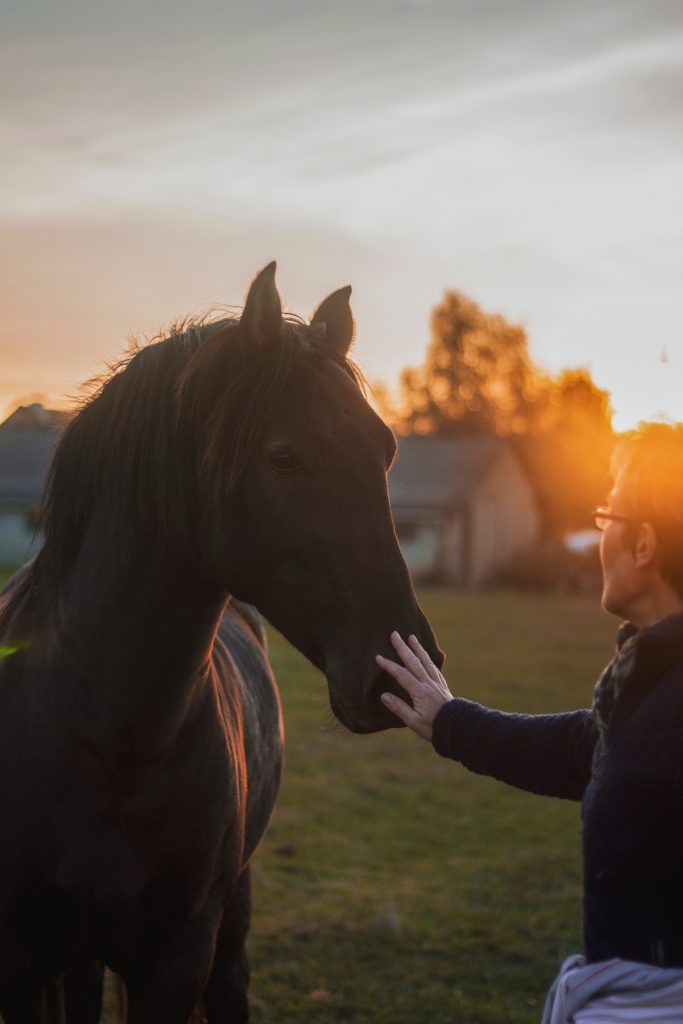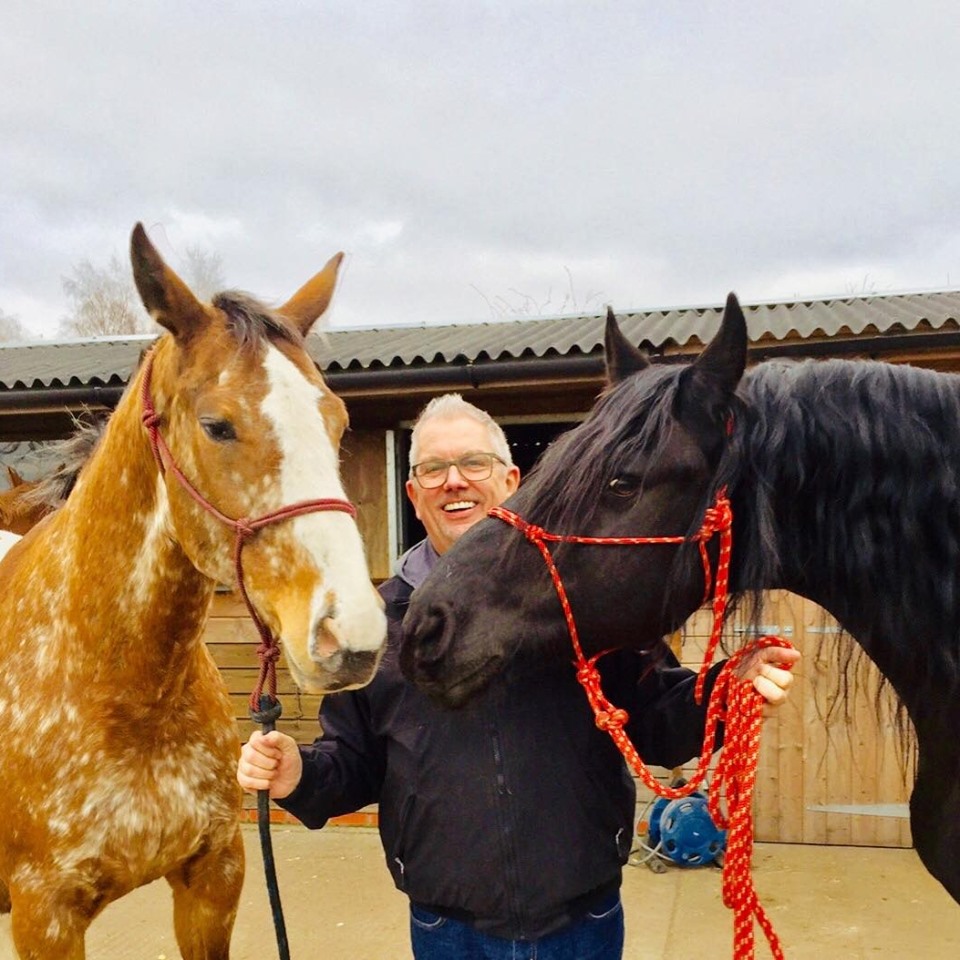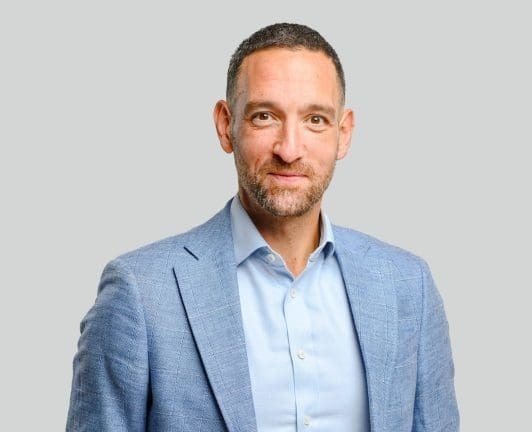We begin the day in the barn sat in circular formation, with the herd grazing placidly just metres away. Our guide, Maggie, explains the day and the process for us. The six horses that make up the herd are all rescued, with varying histories from show ponies to ex-working gypsy cobs. The group have some questions about how the process works and Maggie patiently explains the science behind the empathetic nature of the herd and their ability to understand and intuit the thoughts and feelings of the group at a deep level.

We make our way past the horses and into the far corner of the field to a stone circle with 4 quadrants. Each section represents an element of our life; the physical, mental, emotional, and spiritual aspects of self. We enter the circle from the east as this represents new beginnings in the native American culture from which the stone circle originates. We choose a section personal to us to stand in, spreading out as Maggie guides a 5-minute body scan meditation. It is a strange feeling to spend time outside as a group silently attending to our bodies and the space around us. It leaves the group calm, quiet and reflective.
The following hour spent with the horses passes quickly. Conscious of not invading their space, we are tentative to begin with but as the herd spreads out and begins to mingle, both horse and human relax. Bonds are formed as we find our favourites and spend some time grooming them. Maggie explains why we may feel more connected to one horse than another. The theme of shared trauma re-occurs time and again leaving even the more cynical amongst us unable to deny that they feel a tangible connection to these stoical animals, simultaneously powerful and vulnerable. To spend time with the horses is to see our innermost selves reflected back at us. One of our group mentions they feel safe around the herd, eliciting a choral murmur of agreement from us all.

The afternoon session requires we work together to gently guide one of the herd into a small pen in the field without physical coercion, leading us to conclude that an edible bribe of some description would be the most effective way of achieving this. What follows is a display of ineptitude reminiscent of a Laurel and Hardy sketch as we laugh and bicker our way to failure. The lesson is not lost on us- the outcome (failure in this case) is of lesser importance than the process (teamwork and a lot of fun).
As the day draws to a close, we are invited to turn our attention back towards ourselves. The mood becomes more solemn as we consider our own personal journeys. Much like the herd we are individuals who usually would not mix, our backgrounds diverse and varied. Yet we are all connected- through our past experiences, present circumstances and hopes for the future. The horses are individuals but very much a herd, unrelated but unmistakably a family, strong alone but far more powerful together. As we drive home to Delamere in contented silence reflecting on the shared experience of the day, it is clear that together as a group, we feel the same way.
Guests at Delamere take part in Equine Assisted Psychotherapy as part of our 28 day Stop, Start, Grow treatment programme.
To find out more about equine therapy see our article all about it.






